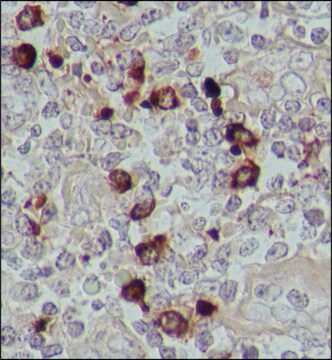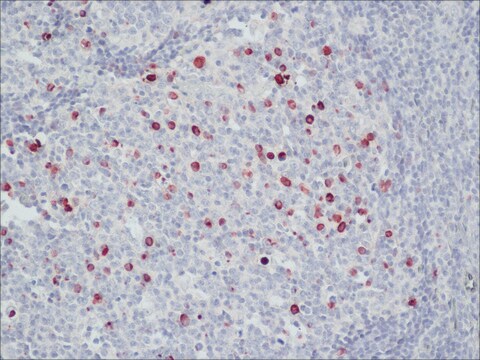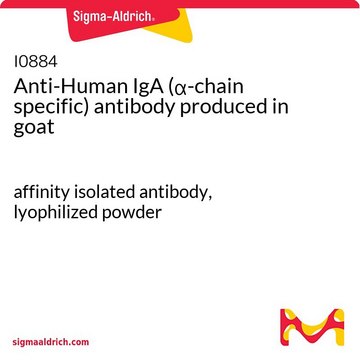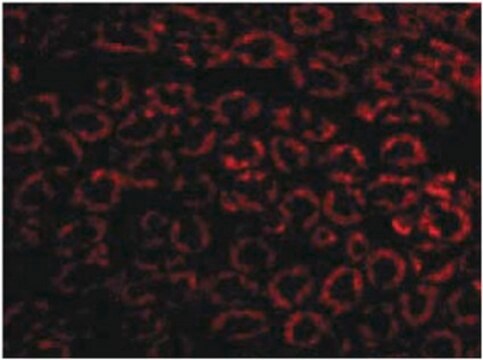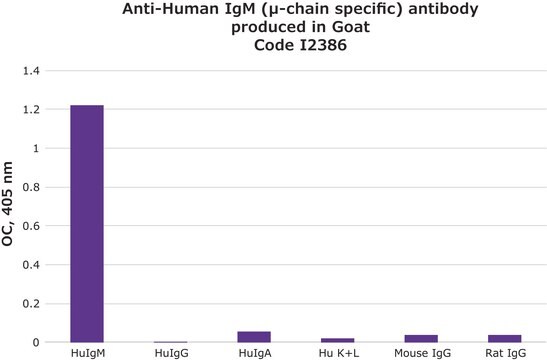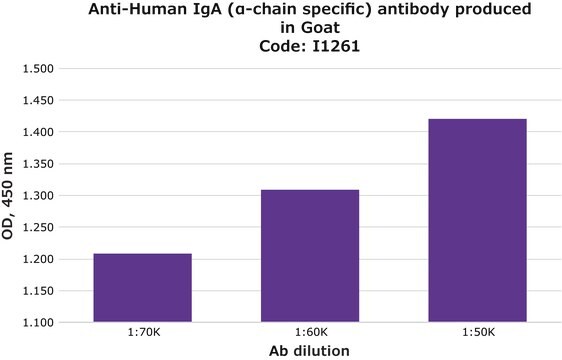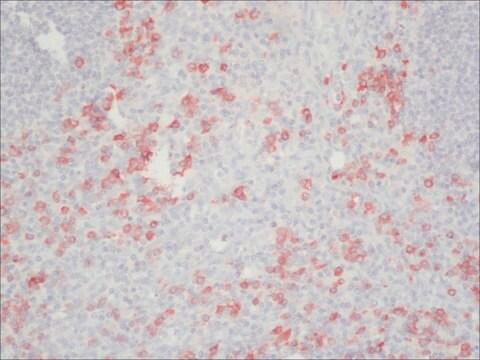AP120P
Goat Anti-Human IgA Antibody, IgG, and IgM, HRP conjugate
Chemicon®, from goat
About This Item
Produtos recomendados
fonte biológica
goat
Nível de qualidade
conjugado
peroxidase conjugate
forma do anticorpo
affinity purified immunoglobulin
tipo de produto de anticorpo
secondary antibodies
clone
polyclonal
reatividade de espécies
human
fabricante/nome comercial
Chemicon®
técnica(s)
ELISA: suitable
immunohistochemistry: suitable
western blot: suitable
Condições de expedição
wet ice
modificação pós-traducional do alvo
unmodified
Descrição geral
Especificidade
Imunogênio
Aplicação
Western blots: 1:5,000-1:200,000.
Immunohistochemistry: 1:500-1:5,000.
Optimal working dilutions must be determined by the end user.
Secondary & Control Antibodies
Whole Immunoglobulin Secondary Antibodies
forma física
Armazenamento e estabilidade
Informações legais
Exoneração de responsabilidade
Not finding the right product?
Try our Ferramenta de seleção de produtos.
Código de classe de armazenamento
11 - Combustible Solids
Classe de risco de água (WGK)
WGK 3
Certificados de análise (COA)
Busque Certificados de análise (COA) digitando o Número do Lote do produto. Os números de lote e remessa podem ser encontrados no rótulo de um produto após a palavra “Lot” ou “Batch”.
Já possui este produto?
Encontre a documentação dos produtos que você adquiriu recentemente na biblioteca de documentos.
Os clientes também visualizaram
Nossa equipe de cientistas tem experiência em todas as áreas de pesquisa, incluindo Life Sciences, ciência de materiais, síntese química, cromatografia, química analítica e muitas outras.
Entre em contato com a assistência técnica